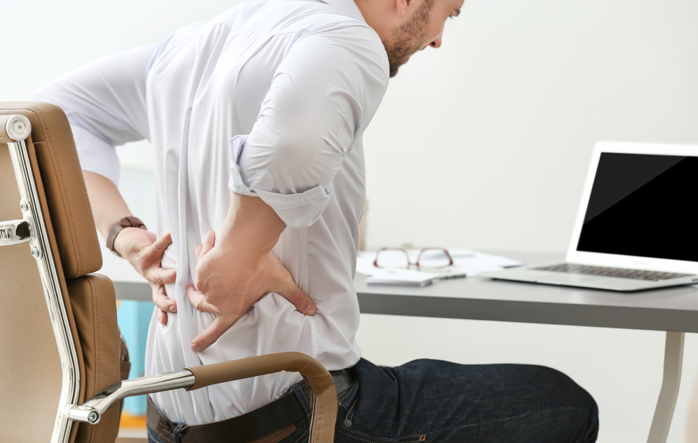How Do I Know If My Back Pain Is A Muscular Or Spinal?

Back pain sometimes makes it hard to tell whether it is caused by your muscles or your spine. Finding out what’s causing your pain is critical to determining the right course of treatment.
Research and clinical trials have found that while imaging (x-rays, CT scan, MRI) can be helpful in determining the type and origin of back pain, it isn’t an absolute requirement every time you experience back pain. After completing a comprehensive physical examination and history, we will identify what’s generating your pain, examine the underlying cause, and devise a personalized pain management plan.
There are usually noticeable differences between pain originating from your spine and pain caused by a muscular issue. Some of these may include;
Signs of Spinal Back Pain
Due to their weight-bearing capabilities and participation in movements such as twisting and bending, the lumbar spine and cervical spine are susceptible to strain. The abnormal stretching or tearing of ligaments and vertebrae can cause strains in the back. Lumbar strain can also be stimulated by a sudden injury or may arise from simply gradually overusing it.
Spinal pain can be due to multiple other factors and health conditions – such as aging, arthritis, or simple wear and tear. The most common cause of spinal pain is any abnormality to your vertebrae, vertebral discs, or facet joints. In general, spinal pain will look different than muscle pain. Your pain may be constant or you may have more tingling (burning or electric sensation type pain). The pain usually radiates down the leg or into the glutes with spine-related issues.
Your groin may ache if you have nerve compression in your back, depending on where the problem is. Surgical treatment might be needed for anything causing severe or chronic spinal pain.
- In short, spinal pain is usually generalized (i.e., radiates to nearby organs) and associated with numbness and tingling sensations.
Signs of Muscular Back Pain
Often you’re aware of the onset of a muscle issue since they are localized. Most muscular back pain cases are due to a sudden pull or trauma to the back, sports injuries, or wrong postures. There are times when back pain may not be physically evident to you but may cause tightness in certain regions of your back or be felt only while lying or sitting. In some cases, you may have pain at rest depending on the degree of severity. A physician should always be consulted if you experience pain at rest with any condition.
Muscular back pain is usually localized and doesn’t radiate to the legs and this type of pain is not associated with burning or electric-type pain.
- In short, muscular back pain is usually localized with no associated numbness or tingling sensations.
Treat your back pain with over-the-counter painkillers and home remedies (rest, massage, heat, and ice). If your back doesn’t feel much better or if you’re still experiencing symptoms, consult a doctor or a physical therapist.
A physical therapist is a professional who can help you determine whether you have muscular back pain or it’s originating from your spine. He will also help develop a personalized treatment plan that may involve strengthening and stretching exercises.



